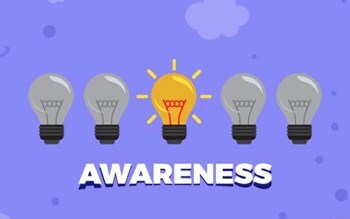Jeremie Averous's Blog, page 3
February 10, 2022
How Geopolitical Competition Give Rise to Grey War
In a new book ‘The Wires of War: Technology and the Global Struggle for Power‘ the author Jacob Helberg describes some geostrategic drivers in the modern world, as explained in detail in this post ‘The Wires of War: Technology and the Global Struggle for Power‘.

Those are:
The Gray War is redefining international politics.The new weapons of war are everyday technologies.The face of censorship has fundamentally changed.Old conceptions of sovereignty no longer apply.In the Gray War, de-industrialization is disarmament.What I find interesting here is the concept of ‘grey war’ and the fact that industrialization is the key to remain at an essential place in the world order. “Gray zone competition conflicts are now a pervasive and predominant feature of international politics. I use the term “Gray War” to describe the systemic global tech-fueled struggle between U.S.-led democracies and China-led autocracies. The stakes of this war are ultimately about political power and influence over every meaningful aspect of our everyday lives, our economy, our infrastructure, our ability to compete and innovate, our personal privacy, and subtle decisions we make based on information we interact with every single day.”
Interconnection of our economies and our technologies has changed significantly the face of geopolitical competition. Conflict takes a different face, with grey war and more permanent threats and attacks.
The post How Geopolitical Competition Give Rise to Grey War first appeared on The Fourth Revolution Blog.February 8, 2022
How to Identify What Will Change and What Won’t in the Future
In this thoughtful post ‘Seeing The Bigger Future‘, we are called to reflect on what is actually change and what isn’t. Basic human needs don’t change irrespective of what technology we deploy, and there are some constants that will remain true, and even if AI develops beyond our wildest dreams.

“While many things are changing around us, the secret is that some things never change. […] You don’t have to focus on the technological details to predict its progress. Anticipating what people will need is a great predictor of what will get built. Because while technology changes, human nature doesn’t. That means predicting “what” is often easier than predicting “how’. Why? Because technology doesn’t often look for a problem; rather, it is the response to one. A medium is just a tool. And the tool is just a way to accomplish something more efficiently.”
We should be careful not to be overwhelmed by changes in our tools. The basic needs we try to respond to are still the same. And focusing on those is what is really important.
The post How to Identify What Will Change and What Won’t in the Future first appeared on The Fourth Revolution Blog.February 5, 2022
How AI Can Support Creative Scientific Research
This provoking Scientific American article ‘AI Generates Hypotheses Human Scientists Have Not Thought Of‘ actually provides an excellent example of how AI can supplement human thought and together create a more productive and creative ecosystem.
 966248982
966248982“Creating hypotheses has long been a purely human domain. Now, though, scientists are beginning to ask machine learning to produce original insights. They are designing neural networks (a type of machine-learning setup with a structure inspired by the human brain) that suggest new hypotheses based on patterns the networks find in data instead of relying on human assumptions. Many fields may soon turn to the muse of machine learning in an attempt to speed up the scientific process and reduce human biases.“
The interesting part here is around reducing human biases, a topic which comes back several times in the article: avoiding preconceived ideas and theories and probably the burden of the institutional view on things. AI can provide an independent view and the combination can spark creative and innovative outputs.
I am convinced that we will find AI to be a great help rather than a competitor in all creative endeavors, like scientific research. And this is just the beginning!
The post How AI Can Support Creative Scientific Research first appeared on The Fourth Revolution Blog.February 3, 2022
How To Regulate Essential Services Like Residential Real Estate
This interesting post ‘Housing, money laundry, speculation and precarity‘ addresses the issue of speculation in real estate. It revolves around the re-regulation of real estate and the limits of deregulation in that area.

Confronted to a meteoritic rise of rents in Berlin the decision was taken to propose to renationalise a part of the real-estate A referendum supported this decision in September, however it still needs to be put in effect.
Real estate was privatized and financialized as bonds and Real Estate Investment Trusts (REITs) focusing on profitability without taking into account the usage of the underlying assets. Moreover, “REITs are private equity, and they’re a devastatingly effective tool for money-laundering. REITs are typically backed by anonymous shell companies from financial secrecy havens and onshore-offshore zones like Delaware, Nevada and Wyoming.“
According to the author the situation is worse in the US where homeowning has been transferred to opaque companies with unknown beneficiaries, which may create substantial issues in the medium and long term. All sorts of unhealthy practices seem to develop in particular in distressed communities. This raises the question of how to put some limits on the financialization of such essential services like personal accommodation real estate.
I am convinced that some essential parts of the economy require proper regulation, however the market principles still need to be at play. What is absolutely important is to make that abusive or fraud behavior is avoided, and that certain financial mechanisms are not a conduit to money laundering.
The post How To Regulate Essential Services Like Residential Real Estate first appeared on The Fourth Revolution Blog.February 1, 2022
How Amazon is Changing the Novel Format
In this interesting article ‘Is Amazon Changing the Novel?‘, the author takes a historical tack to explain how publishing media has always influenced the format of novels. And how the new diffusion channels like Amazon are now changing it again.

In the 19th century, novels were often published in episodes in newspapers or, as explained in the article, in several bands that could be borrowed from public libraries one at a time. This definitely had an influence on the way they were written, including the need to maintain attention through suspense at the end of each part.
Now “Amazon […] controlled almost three-quarters of new-adult-book sales online and almost half of all new-book sales in 2019” (in the US one can presume), and in particular through the publishing possibilities of e-books through Kindle publishing, is definitely changing how novels look like. What are the influences at play?
“The platform pays the author by the number of pages read, which creates a strong incentive for cliffhangers early on, and for generating as many pages as possible as quickly as possible. The writer is exhorted to produce not just one book or a series but something closer to a feed—what McGurl calls a “series of series.” In order to fully harness K.D.P.’s promotional algorithms, McGurl says, an author must publish a new novel every three months.” I also believe it tends to make novels shorter on average, as well as part of a series. A bit like Netflix promotes series over movies, with the result a much longer total time spent in front on the screen!
The rise of Amazon as a major publisher and a driving force in e-book publishing will shift the novel genre to shorter formats and new ways to consume them. The impact of the publishing media on the novel has always been there and continues.
The post How Amazon is Changing the Novel Format first appeared on The Fourth Revolution Blog.January 29, 2022
How our Stressful Experiences Leave Traces in our DNA, that can be transmitted to our children
There is increasing evidence that traumatic experiences leave traces in our genetic makeup. An exemple is developed in the article (in French) ‘Childhood abuse leaves scars in the DNA‘; this is also true of other forms of stress – for example this article from the US American Psychological Association ‘How chronic stress is harming our DNA‘

This has been observed for a decade now in particular regarding the expression of certain genes, and in general epigenetic changes, which can be transmitted although they don’t change the overall DNA codes. Those changes are deeper when stress is stronger and more repeated. There is now proof that these can be transmitted to children, but also that they can in a certain manner be reversible, as proven by certain studies on post-traumatic stress disorder and the actual impact of psychotherapy.
In the field of chamanism and trance, it is considered known that people can bear within themselves the consequences of acute stress suffered by one’s ascendants and some ceremonies are designed to manage this situation.
DNA expression modification linked to one’s environment is all quite a new investigative domain with interesting consequences on the eternal topic of determination and choice. Expect more to be understood and written on that topic in the next years!
The post How our Stressful Experiences Leave Traces in our DNA, that can be transmitted to our children first appeared on The Fourth Revolution Blog.January 27, 2022
How To Develop the Skills of Successful Strategic Advisors
This article by Valeria Maltoni ‘The 12 Qualities of Extremely Valuable, Highly Paid Strategists’ provides an interesting insight into the skills of strategic advisors.

The skills she mentions are the following:
Know which problem the insight can solveHave a broad and expanding scope of knowledgeUnderstand the psychology of leadersRespect high-value expertsImprove the person, not just the projectBe fluent with languageBe adept with varied tools and techniquesUnderstand the power of wordsKnow how to write and presentPreserve the expert’s voiceWork fastWork wellI find this list quite interesting, and in particular the statement “improve the person, not just the project”. It is something I have always felt, taking a coaching certification to enable this work on the client as a person in addition to working on harder stuff.
Certain skills make a huge difference when advising on strategy. And they are not about being better at strategy! A lot deals with interpersonal skills and asking the right questions.
The post How To Develop the Skills of Successful Strategic Advisors first appeared on The Fourth Revolution Blog.January 25, 2022
How Creativity Requires Writing Ability
Paul Graham’s post ‘Beyond Smart‘ addresses the issue of smartness and creativity. And in one passage I noted, it states that creativity requires writing ability.

Being very smart is not the same as having new ideas. “There are a lot of genuinely smart people who don’t achieve very much.” Paul Graham mentions that one of the conditions of creativity is certainly being smart, but it requires also other characteristics such as independent-mindedness, learning to develop one’s own projects and activities…
“One of the most surprising ingredients in having new ideas is writing ability. There’s a class of new ideas that are best discovered by writing essays and books. And that “by” is deliberate: you don’t think of the ideas first, and then merely write them down. There is a kind of thinking that one does by writing, and if you’re clumsy at writing, or don’t enjoy doing it, that will get in your way if you try to do this kind of thinking“
I personally tend to agree with this statement – I am generally more creative when I start writing down and ordering my thoughts. And this allows actual creative work by putting them into a consistent manner. This is also one of the reasons why I am writing this blog.
Develop your writing ability to become more creative. A non-obvious but important way to enhance creativity!
The post How Creativity Requires Writing Ability first appeared on The Fourth Revolution Blog.January 22, 2022
How New Problems Require Clear Awareness
In this excellent post ‘New problems, old problems‘, Seth Godin distinguishes how we should approach known problems and new problems.: “a new problem doesn’t need fresh thinking, it needs clear awareness.”

Seth Godin underlines that most of the issues we face are known, or similar to issues we have already addressed. They don’t require much creativity. Except if we have to find another solution to solve a problem we could not overcome, or a problem which we have never seen. In that case, proper situation awareness is needed to ask the right questions and take the right actions. “We can begin by acknowledging we have a problem, identifying the constraints, the boundaries and the assets involved. And then we can go to work to solve it.”
Known problems can be addressed with known solutions. Resisting or new problems require creativity, and this starts with awareness.
The post How New Problems Require Clear Awareness first appeared on The Fourth Revolution Blog.January 20, 2022
How Resilience is About Recharging
This popular HBR article ‘Resilience Is About How You Recharge, Not How You Endure‘ takes an interesting angle on the issue of personal resilience.
[image error]According to the authors speaking about the resilience of corporate employees, “the problem comes from a misunderstanding of what it means to be resilient, and the resulting impact of overworking.” While we tend to see resilience in a militaristic manner of a tough super-hero, research apparently shows that “there is a direct correlation between lack of recovery and increased incidence of health and safety problems. And lack of recovery — whether by disrupting sleep with thoughts of work or having continuous cognitive arousal by watching our phones — is costing our companies $62 billion a year (that’s billion, not million) in lost productivity.”
Thus, “the key to resilience is trying really hard, then stopping, recovering, and then trying again. This conclusion is based on biology.” And, “When the body is out of alignment from overworking, we waste a vast amount of mental and physical resources trying to return to balance before we can move forward.”
This is definitely an area where I need to improve: finding ways to really stop and most importantly, stop thinking about work-related issues.
Resilience – playing the long term game – requires recuperation and recharging between periods of intense work, on a daily, monthly and annual frequency. Quite an important lesson!
The post How Resilience is About Recharging first appeared on The Fourth Revolution Blog.


